
In Scotland we have the highest number of drug-related deaths in Europe, perhaps in the world. We had a shameful 1399 drug-related deaths in 2020. Our alcohol-related deaths are also alarming. A lot of effort and resource is going into tackling the issue which we hope will make a difference. There are calls for much more to be done. What else can we do though? What is missing? Could there be a non-medical, simple-to-implement intervention that would make a difference?
Getting plugged in
The concept I’m contemplating is simple and it’s not my idea. It’s this: healthy social networks (the people we connect with) are protective. Improving social networks brings gains in physical and mental health. People suffering with addiction frequently have damaged or unhealthy social networks. They are often dislocated and estranged or excluded from being active community members. Connecting them back into supportive networks is likely to be of benefit. As I say, there is existing evidence on this, though there are serious questions about how far it has penetrated into the practice of treatment providers or commissioners.
If we look at existing research, there’s no better place to start than examining the impact of social networks on longevity and wellbeing. In 2010, Julianne Holt-Lunstad and her colleagues undertook an impressive meta-analysis (massive review of the evidence available) to see how social relationships influenced mortality. They found a protective effect for those with stronger social relationships. In fact, for this group there was a 50% increased likelihood of survival. In medical terms, this is a very large effect – similar to stopping smoking. You want to live longer? Get lots of friends.
Mark Litt and his colleagues explored this concept in alcohol-dependent men and women in 2009. In a high-quality trial, they tested out linking individuals into new pro-abstinence networks vs. other established treatments and found that those who formed new connections (in mutual aid) did better than established treatments. A stunning finding was that:
the addition of just one abstinent person to a social network increased the probability of abstinence for the next year by 27%.
Litt found that drinkers’ social networks can be changed by a treatment that is specifically designed to do so, and that these changes contribute to improved drinking outcomes.
A recent Cochrane review of the impact of Alcoholics Anonymous and interventions to help people get connected to it scotched many of the myths that sceptics attach to mutual aid.
So how are we doing on this front?
If we could get this sort of impact from medication in alcohol treatment settings, we’d be very happy, and if you are like me, you’ll be thinking, ‘lets go for it!’ Yet when commissioners asked 250 addiction treatment service users in Edinburgh in 2010 how many of them had ever been to a mutual aid group, the answer was less than 1%.
This is pretty dismal. In 2010, we weren’t doing very well in the city of Edinburgh. My hope is that if this was repeated today, we’d see an improvement. But we don’t know, because nobody is measuring how effectively we are connecting our clients to community recovery supports like mutual aid and lived experience recovery organisations (LEROs). This suggests that we don’t rate this kind of intervention as being relevant to our fight against drug deaths.
Getting equipped for recovery
There are two papers recent papers that caught my eye which are relevant to this topic and are worth a read. I’m not going to analyse them here, but I will pick out some key points. In the first ‘Are members of mutual aid groups better equipped for addiction recovery?’, Thomas Martinelli and colleagues interviewed 367 people in recovery from drug addiction and looked at how membership of mutual aid groups related to things like social networks, recovery capital and commitment to sobriety.
They recruited the participants in Belgium, the Netherlands and the UK by a variety of methods including social media, newsletters, conferences, posters, flyers, magazines and by contacting prevention and treatment organisations. Participants self-identified as being in recovery for at least three months and completed a questionnaire.
Findings
Interestingly, 69% reported membership of mutual aid groups at some point. When lifetime mutual aid members were compared with non-mutual aid members, some differences appeared with significant benefits to the mutual aid group members. These were identified in things like: paid employment (64% vs. 45%); abstinence from drugs (94% vs. 75%) and abstinence from alcohol (81% vs. 52%).
For those who were using drugs or alcohol, using days and drinking days were 3 times higher in the non-mutual aid group. There were strong associations with improved social networks, increased recovery capital (and ability to sustain recovery) and commitment to recovery for mutual aid group members. Those who were current members of mutual aid groups consistently reported more resources than those who had been members in the past. The benefits were greatest for members of 12-step groups, but positive outcomes did extend to non 12-step groups too.
Bottom line?
the expanding evidence on the benefits of mutual aid group participation should justify further exploration of its inclusion into system-wide practice of addiction services and to encourage services to refer to mutual aid groups
Getting a dose of recovery
In the other paper which focuses on the negative issues associated with social networks – ‘Social network theory—an underutilized opportunity to align innovative methods with the demands of the opioid epidemic’, Christina Cutter and colleagues point out that demand for opioid use arising from social networks and environment is an important contributing factor to the current opioid crisis.
Previous research on behaviours shows cluster effects (e.g. around obesity, suggesting that if you want to lose weight, you should hang around with thin friends). They recommend that we explore the ‘social contagion model’, an approach which puts forward that behaviours develop through role modelling and spread as if they are infective.
Their argument focusses on the problem (how opiate addiction spreads) and they express how understanding and exploration of this could help develop new strategies. They powerfully describe the issue of ‘social networks of despair’ arising from overdoses and deaths, but they also shine a light, turning things around and presenting the opportunity for the social contagion model to operate as a catalyst for recovery. I often paraphrase this as ‘if you hang around people in recovery long enough, you are likely to catch a dose of it.’
Indeed, the authors give mutual aid (AA) as an example of how this is done. After all, AA has now been shown to be as effective, if not more effective, than other evidence-based psychosocial interventions. Fittingly for these times, Cutter et al extend the contagion model and highlight the process for a cure:
Here the “vaccine” would not be a pharmacologic injection, but rather a multidisciplinary, cross-sector strategy to combat the spread of opioid overdose and related death similar to public health interventions aimed at combating the spread of an infectious disease.
At the time, the announcement of a vaccine against covid-19 generated phenomenal interest and jubilation. Hope began to be generated. Could we ‘vaccinate’ against drug and alcohol deaths by connecting those who use our services to mutual aid and other community recovery resources? From what we know, this would likely have a very significant impact on outcomes compared to most interventions.
Based on the evidence, connection to mutual aid is already recommended in our drugs strategy, by NICE and in the Orange Book National Clinical Guidelines as well as the ACDM report on Medications in Recovery. But it it happening?
We don’t have to reinvent the wheel here. Public Health England have a great toolkit available to make this easy. I recommend it strongly.
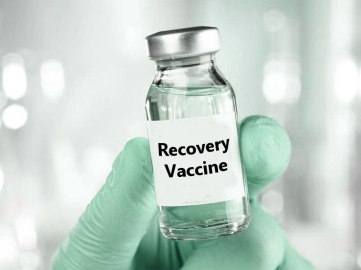
Now, I’m not claiming this approach as an answer to our opiate (and alcohol) deaths. There is no single answer. What I am saying is that we ought to vigorously test out the social contagion/social networking model as part of the range of interventions we are currently adopting – the evidence is already strong and accumulating.
I’d like to see this approach at the heart of all of our interventions and have services held to account on how effectively they link service users into new social networks. I’d like to see some research exploring the impact of adopting a vigorous approach to this. Then I think we would really see change.
Continue the discussion on Twitter: @DocDavidM
This is an updated version of a blog first published in 2020.

I’ve been waiting for today with a degree of anxiety throughout the whole of July. Even with the Mediterranean temperatures we’ve basked in this month, my thoughts have regularly turned in dark anticipation to today. Now it is here. Today the new drug-related death statistics for Scotland have been published.
1339 deaths. Up 5% on last year’s already awful numbers. Four and half times higher than in 2000. We are a country with a population of just over five million people. The figures are like vapour, impossible to catch and hold in my hands or in my head. So many lost lives. A few of those who died were known to me – people I met on their journey – often at hopeful points on their road. They are people who were loved by their partners, mothers, fathers, siblings, friends and children. People whose lost years of life, whose lost potential impacts us all.
And that’s not all. This week I read that more people with substance use disorders die from poor physical health, than from drugs directly. Their lives are cut short by pathologies often related to health inequalities, lifestyle, smoking etc. These numbers for drug deaths are likely a gross underestimate.
And let’s not forget the other drug death epidemic. That caused by alcohol. We have peculiar divides when it comes to comparing our illicit drugs with our legal, regulated drugs. Ignoring the connections, the similarities feels like a kind of denial. My patients no longer sort themselves conveniently into categories. Poly-drug use is the norm. It’s definitely harder now to separate out a single problem drug in individuals who come to treatment. Alcohol deaths are so clearly also part of Scotland’s shame, though it seems to me that the subject gets far less attention.
I am contemplating the issue of those of us in long term recovery today who did not die – those of us who survived, and I wonder what was different about us? What protective factors, what treatments, what supports made the difference? There’s an edge of guilt to those thoughts. If everyone got the same standard of treatment that I as a middle class doctor got, would there be fewer deaths? You are 18 times more likely to die if you come from a deprived area than an affluent one. Clearly these risk factors are hugely important,, but do we also get offered different quality and types of treatment based on our backgrounds? Is the outcome expectation different?
There will be a lot of blame in written and spoken word over the next few days, not all of it helpful. There are many people trying earnestly and in good faith to make things better. But, the truth is that the responsibility lies with us all. I wrote a couple of blogs when last year’s deaths were published which I’ll put up again over the next day or two, but I’m really not in the mood today for writing any more about the problem or approaches to tackle it.
Today I am just letting those numbers sink in. I’m remembering the faces of those I have known over time who have died from addiction – not all of them patients. I’m thinking of the ones left behind who loved them – the devastation for families. I’m thinking of our nation’s loss and grief. And of my own..
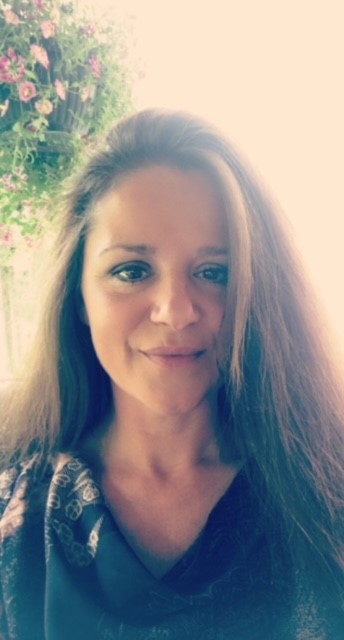
Lorie White is the latest addition to SMART’s staff. As National Office Administrator, she’s all about best practices in operations and workflow. Given the variety of the substantive work by the crew at HQ in Mentor, you might say it’s valid to add symphony conductor to her job description. She’s prepared for whatever zaniness comes her way.
More seriously, Lorie brings a passion for people to SMART, “…especially those that are struggling with an addiction or addictions that effect their lives or the lives of their loved ones.” This passion leads to making a difference in people’s lives both directly and indirectly.
In her key role, Lorie supports SMART leadership and works as part of the team that is setting organizational direction. Since the new strategic plan is gaining traction, Lorie’s new presence at SMART couldn’t have come at a better time.
Here are Lorie’s responses to the Take 5 Spotlight questions:
- Are there tasks you perform regularly during your workday?
I support the organizations executive leadership and BOD for required administrative matters—all day long! - What are a couple of the ways you interact and coordinate your job with other national office staff? Regular staff meetings, also many Zoom meetings one-on-one with staff members.
- What is one of the ways that you think you personally make a difference at SMART? I am empathetic and passionate; I make sure I see things through to the end. I also make sure there is constant communication.
- What is your message to all those dedicated SMART volunteers across the country? Thank you for all the hard work and dedication that you have put into your communities. You are selfless, kind, and compassionate, it takes such an amazing person to do what you do.
- What kinds of things are you interested in outside of work? I love to spend time with my family. My husband and I have 4 children and 3 grandchildren. We like to steal away some time and go to the lake just for a relaxing day or half of a day depending on what projects we have going on.
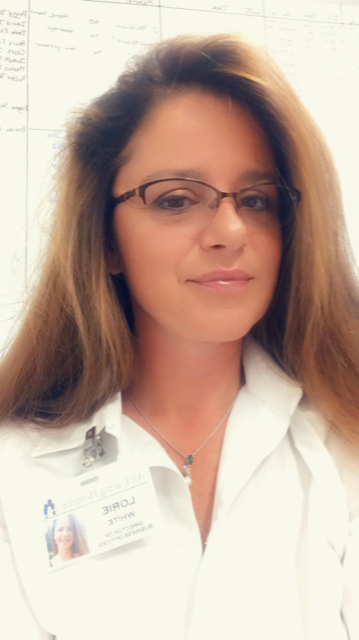
The combination of office skills and an empathic nature means Lorie contributes value to myriad aspects of SMART’s mission. And the symphony she conducts will certainly earn a standing ovation.
Learn more about the Take 5 Spotlight series and see others who have been profiled.
PLEASE NOTE BEFORE YOU COMMENT:
SMART Recovery welcomes comments on our blog posts—we enjoy hearing from you! In the interest of maintaining a respectful and safe community atmosphere, we ask that you adhere to the following guidelines when making or responding to others’ comments, regardless of your point of view. Thank you.
- Be kind in tone and intent.
- Be respectful in how you respond to opinions that are different than your own.
- Be brief and limit your comment to a maximum of 500 words.
- Be careful not to mention specific drug names.
- Be succinct in your descriptions, graphic details are not necessary.
- Be focused on the content of the blog post itself.
If you are interested in addiction recovery support, we encourage you to visit the SMART Recovery website.
IMPORTANT NOTE:
If you or someone you love is in great distress and considering self-harm, please call 911 for immediate help, or reach out to The National Suicide Prevention Hotline @800-273-8255, https://suicidepreventionlifeline.org/
We look forward to you joining the conversation!
*SMART Recovery reserves the right to not publish comments we consider outside our guidelines.*
Subscribe To Our Blog
Join our mailing list to receive the latest news and updates from the SMART Recovery Blog.
You have Successfully Subscribed!
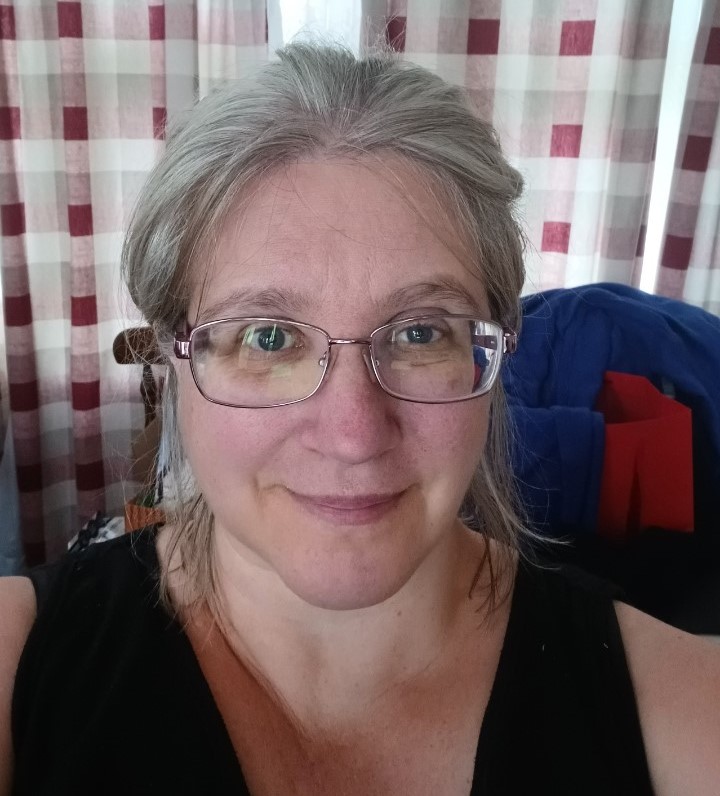
Cliches aren’t necessarily just a lazy writer’s crutch. Sometimes they accurately convey a person’s character. In the case of SMART’s Office Productivity/Business Process Analyst Karin Ostroske, the phrase “Still waters run deep” is a bullseye. For example, here is her take on what previous positions have taught her. “I’ve learned that people are people. Whatever skills I have to offer pale in comparison to the importance of meeting people where they are, eye to eye, soul to soul.”
That’s not only deep, it’s true.
In her role at SMART, Karin often meets people at the intersection of computer-use and frustration. Not only does she provide general computer support, she administrates Zoom, analyzes processes, and automates solutions. This includes training both staff and volunteers around Microsoft apps. Kind of important stuff.
Her work helps reduce stress for co-workers and allows them to meet complex challenges with a greater chance of success. Her success is intricately tied to SMART’s effectiveness.
Here are Karin’s responses to the Take 5 Spotlight questions:
- Are there tasks you perform regularly during your workday? Each day offers unique situations, but I have scheduled time every day to process and respond to requests for help with meeting verifications and Zoom licenses.
- What are a couple of the ways you interact and coordinate your job with other national office staff? I listen, I ask, I cheer, I empathize.
- What is one of the ways that you think you personally make a difference at SMART? By pitching in, finding easier & more efficient ways to do things, keeping an eye for detail and staying positive while calmly helping others, I do the best I can where I am.
- What is your message to all those dedicated SMART volunteers across the country? Don’t let the muggles get you down. Seriously, we who serve run the risk of neglecting ourselves. I remind myself often of this quote from Iain Thomas: “And every day the world will drag you by the hand yelling, “this is important! And this is important! And this is important! You need to worry about this! And this! And this!” And each day, it’s up to you to yank your hand back, put it on your heart and say, “No, this is what’s important.”” It’s okay to say no, it’s okay to ask for help, it’s okay to breathe. Thank you for caring for yourselves as you care for others.
- What kinds of things are you interested in outside of work? I savor music & theater, I renew myself through writing, sewing, reading and spending time in the woods & by the lakeshore, and I thrive among my family and friends – especially when we play board games like Ticket to Ride, Settlers of Catan, and Sentinels of the Multiverse.

While it may not be typical for someone to talk about meeting a colleague soul to soul, Karin’s attitude and actions support such an outward expression of her personal values. Her authenticity runs deep, even as her busyness at SMART doesn’t always amount to being still.
Learn more about the Take 5 Spotlight series and see others who have been profiled.
PLEASE NOTE BEFORE YOU COMMENT:
SMART Recovery welcomes comments on our blog posts—we enjoy hearing from you! In the interest of maintaining a respectful and safe community atmosphere, we ask that you adhere to the following guidelines when making or responding to others’ comments, regardless of your point of view. Thank you.
- Be kind in tone and intent.
- Be respectful in how you respond to opinions that are different than your own.
- Be brief and limit your comment to a maximum of 500 words.
- Be careful not to mention specific drug names.
- Be succinct in your descriptions, graphic details are not necessary.
- Be focused on the content of the blog post itself.
If you are interested in addiction recovery support, we encourage you to visit the SMART Recovery website.
IMPORTANT NOTE:
If you or someone you love is in great distress and considering self-harm, please call 911 for immediate help, or reach out to The National Suicide Prevention Hotline @800-273-8255, https://suicidepreventionlifeline.org/
We look forward to you joining the conversation!
*SMART Recovery reserves the right to not publish comments we consider outside our guidelines.*
Subscribe To Our Blog
Join our mailing list to receive the latest news and updates from the SMART Recovery Blog.
You have Successfully Subscribed!

We are pleased to announce the release of our newest Tips & Tools for Recovery that Works! video Exchange Vocabulary.
The Exchange Vocabulary method is a great way for you to identify words you think or use in your everyday life that may be “demands” instead of “preferences”.
But some words can do great harm: Particularly absolute words like must, can’t, always, and never. The use of absolutes can often fuel negative emotions when you’re dealing with tough situations.
Watch The ABCs of Coping with Urges video.
Order the SMART Recovery Handbook.
Learn more about the SMART tools.
Subscribe to the SMART Recovery YouTube Channel
Video storytelling is a powerful tool in recovery, and we are proud to share our SMART Recovery content free-of-charge, available anywhere, on any device. Our videos hope to inform, entertain, and inspire anyone in the recovery community.
Subscribe to our YouTube channel and be notified every time we release a new video.
PLEASE NOTE BEFORE YOU COMMENT:
SMART Recovery welcomes comments on our blog posts—we enjoy hearing from you! In the interest of maintaining a respectful and safe community atmosphere, we ask that you adhere to the following guidelines when making or responding to others’ comments, regardless of your point of view. Thank you.
- Be kind in tone and intent.
- Be respectful in how you respond to opinions that are different than your own.
- Be brief and limit your comment to a maximum of 500 words.
- Be careful not to mention specific drug names.
- Be succinct in your descriptions, graphic details are not necessary.
- Be focused on the content of the blog post itself.
If you are interested in addiction recovery support, we encourage you to visit the SMART Recovery website.
IMPORTANT NOTE:
If you or someone you love is in great distress and considering self-harm, please call 911 for immediate help, or reach out to The National Suicide Prevention Hotline @800-273-8255, https://suicidepreventionlifeline.org/
We look forward to you joining the conversation!
*SMART Recovery reserves the right to not publish comments
we consider outside our guidelines.*
Subscribe To Our Blog
Join our mailing list to receive the latest news and updates from the SMART Recovery Blog.
You have Successfully Subscribed!
This post is cross-posted at williamwhitepapers.com
When I remember the thousands who died, many whose stories were never recorded in history, I bow my head. And when my wailing is done, I get up and carry on, not in my name, but in theirs….When you know your history, you know your value. You know the price that has been paid for you to be here. You recognize what those who came before you built and sacrificed for you to inhabit the space in which you dwell.
–Cicely Tyson (with Michelle Burford), Just as I am
We have not even to risk the adventure alone; for the heroes of all time have gone before us; the labyrinth is thoroughly known; we have only to follow the thread of the hero-path. And where we had thought to find an abomination, we shall find a god; where we had thought to slay another, we shall slay ourselves; where we had thought to travel outward, we shall come to the center of our existence; where we had thought to be alone, we shall be with all the world.
–Joseph Campbell, The Hero with a Thousand Faces

Those seeking and in recovery owe a great debt of gratitude to earlier generations of people whose life discoveries opened and charted pathways to addiction recovery and built the recovery support organizations available to us today. Much of my (BW) past work focuses on excavating and celebrating the lost stories of these recovery pioneers.
The stories of many of our recovery ancestors remain publicly shrouded behind a veil of stigma. For generations, others who sought our control or cure spoke on our behalf while our own faces and voices remained hidden and silent. Actually, those who spoke for us spoke their stories—their perceptions of us and their work on our behalf, but authentic, first-person narratives of addiction and recovery remained obscured and sometimes misrepresented by such accounts.
Today, we are rediscovering lost recovery stories and declaring that we can now speak for ourselves. Every stigmatized and oppressed people must liberate their history and take control of their own stories. As the African proverb suggests, “Until the lion learns how to write, every story will glorify the hunter.”
We as a people can assure that the stories of our recovery ancestors are preserved and called forth at critical times to illuminate our present circumstances. Here are few potential possibilities.
- Designating and training archivists and archival skills within recovery-focused organizations
- Creating formal recovery archives for historical preservation and research
- Digitizing historical materials and creating virtual libraries filled with resources on the history of addiction recovery
- Creating and disseminating histories of recovery, recovery mutual aid and advocacy organizations, and key recovery figures via articles, books, films, plays, and photo exhibits.
- Creating and disseminating the history of recovery among special populations, e.g., women, youth, people of color, LGBTQ, etc.
- Preserving iconic historical sites
- Creating forums for communication between people interested in the history of recovery, e.g. AA History Lovers, NA History Lovers
- Creating oral history projects through which the stories of local recovery elders are recorded and preserved
- Hosting symposia on the history of addiction recovery and related organizations, and
- Ancestor consultations: Consulting with local recovery elders and regularly asking ourselves how recovery ancestors responded to challenges and opportunities similar to those we are currently facing.
Our recovery ancestors have provided a body of historical lessons. They have endowed an intellectual and emotional inheritance on how to best navigate the complexities, challenges, and opportunities within the experience of addiction recovery. They have also forged values and traditions that can best guide our collective life within recovery-missioned organizations. We honor our ancestors by letting their lessons inform our current circumstances. We show up to assert our own needs and aspirations, but we also show up to honor the ancestors that make our survival possible.
You cannot know yourself without knowing the history of your people. We bear the scarred wounds of past recovery generations—the emotional memory of objectification, demonization, maltreatment, and mass incarceration, but we also possess within us the inherited capacity to survive and thrive if we draw upon it.
We must all become students of our history as a people. Once we become students of history, the wisdom of our recovery ancestors lives inside us. We can then elicit the voiced guidance of our ancestors when we most need it. We are but one link in this chain of history. What we as a people achieve today are the fulfilled dreams of our ancestors. What we do today in preparing those who will follow us will shape the future of recovery for generations to come.
We must show up and do our part to prevent a break in this historical chain of personal healing and social progress. We do that for ourselves and in payment for our ancestors’ sacrifices. Our ancestors do not die until we last speak their names. In honor of what they have bequeathed to us and as aide to our own survival and health, we must continue to speak their names.
A version of this post was originally published in April 2019.
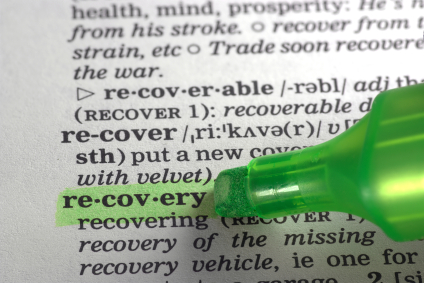
Recently proposed definitions of recovery could be characterized as defining it downward (or expanding the boundaries outward).
I’ve expressed concern that these proposed boundaries are so broad that most people who currently self-identify as in recovery will not feel a shared identity with the people that advocates are trying to expand the boundaries to include.
I believe, if these new definitions take root, recovering people will feel a need to establish typologies of recovery or select a new word to convey the identity they share.
Addiction recovery is far more than the removal of drugs from an otherwise unchanged life. Recent definitions of recovery transcend radical changes in the person-drug relationship and encompass enhanced global health and social functioning. The authors have carried on a decades-long interest in what has been christened full recovery or amplified recovery—a state of enhanced quality of life and personal character in long-term recovery.
First, note that they begin by describing recovery as more than the removal of drugs. (Removal of drugs is more like a floor than a ceiling.) Bill has previously described something he calls “precovery“, which would apply to many of the behaviors that the proposed more diffuse conceptual boundaries seek to include.
Second, some of the rhetoric around recovery advocacy might make a productive discussion challenging. The need for typologies stems from the desire to distinguish one type from another and use these typologies in some way. How might they be used? They would likely be used to organize research and programming around each type. This means these typologies would be used in inclusion/exclusion criteria for everything from research to treatment to recovery housing to collegiate recovery programs to physician health programs to state or unstated hiring practices.
There are serious and important equity issues that include problems related to access to care, incarceration, and privilege. The social justice framing has the potential to illuminate and clarify these inequities. It also has the potential to complicate discussion and disagreement because positions get cast as just vs unjust, moral vs immoral, and valid vs invalid.
I’ve been increasingly concerned that addiction treatment and policy has become a new battleground for the culture wars without many of us even realizing it was happening or conceiving that treatment belonged on any “side” of a culture war. Some good may come of it, but it’s hard to imagine that there would not be a lot of damage, polarization, contempt, and fragmentation accompanying it. There’s also the question of how patients will respond to a field that’s a front in a culture war.
UPDATE: The FDA’s proposed alternative endpoints are also germane to this discussion and increases the need for productive discussion. Are they appropriate endpoints? Are they recovery?

A version of this post was originally published in September 2019.
Fortunately, there’s been growing concern that advocates, policymakers, and media have too narrowly focused on the opioid crisis. Up to this point, it hasn’t reached the level of media coverage.
USA Today is one of the first to publish an article that explores the limitations of the nation’s focus on opioid treatment and recovery:
More than eight years into his opioid-addiction treatment, Paul Moore was shooting cocaine into his arms and legs up to 20 times a day so he could “feel something.”
The buprenorphine he took to quell cravings for opioids couldn’t satisfy his need to get high. Moore said he treated himself like a “garbage can,” ingesting any drug and drink he could get, but soon enough, alcohol and weed had almost no effect unless he vaped the highest-THC medical marijuana available.
Cocaine, however, especially if it was mainlined — now that could jolt him from his lifelong depression to euphoria.
The article provides several important messages:
- The importance of addiction treatment over opioid use disorder treatment for many (if not most) patients, because polysubstance use problems are the norm and agonist treatments do not treat other substance use problems.
- Along similar lines, messages about opioid recovery can be misleading for patients, families, and communities.
- These issues raise the importance of clarity about the boundaries of recovery. For example, were these people in recovery when they were in opioid use disorder treatment and reduced or quit using opioids, but were still using cocaine and experiencing poor quality of life due to untreated addiction? (This would have been an uncontroversial and easy question to answer just a few years ago. Today, there are many saying that any movement toward wellness or participation in harm reduction is recovery.)
- The article also highlights what gets missed when agonist treatments (buprenorphine and methadone) are described as the most highly effective and highly successful treatments without more context. They rarely answer the question, effective at what? (This isn’t saying that these medications aren’t useful or don’t have a place in care. Rather, it’s important that journalists and experts do not oversell their evidence for effectiveness. Goals like overdose prevention are incredibly important but, generally, recovery only follows overdose prevention with addiction treatment of adequate quality, duration, and intensity.)
Failure to clarify and communicate these messages is likely to result in increased stigma for addiction and recovery.
Rather than communicating that addiction is a treatable illness, the unintended message will be that addiction more closely resembles a chronic disability than a treatable illness that has a good prognosis when the patient receives treatment of adequate quality, duration, and intensity.
This century’s first wave of recovery advocacy was built upon the message that we can and do recover when we get the right help and support. In this context, recovery meant something resembling the Betty Ford Consensus Panel definition:
Recovery from substance dependence is a voluntarily maintained lifestyle characterized by sobriety, personal health, and citizenship.
The traditional understanding of addiction recovery alludes to the restoration of people in their families, communities, and a life in alignment with their goals and values.
Adjustments to that understanding are likely to result in readjustments in the public’s attitudes, which are eventually likely to result in readjustments in policy.

The Joseph Gerstein Award selection committee is calling for nominations for the 2021 Joseph Gerstein Award. If you know someone who has shown extraordinary and exemplary service to the SMART program, please submit your nomination using this link. Deadline for nominations is September 8, 2021.
Nominees for the Joseph Gerstein Award will have remarkable attributes such as:
- Having provided long and continued service to SMART Recovery
- Significant contributions of time and/or funds
- Adding significantly to the science and evidence base foundation that supports SMART’s concepts and tools
- Championing significant new initiatives
- Working energetically and creatively to support SMART’s activities, etc.
Please note: Current members of SMART Recovery’s Board of Directors are not eligible.
The award will be presented at the SMART Recovery National Conference on October 23, 2021.
Click here to submit your nomination.
About the Award:
This very special award was first announced and awarded at the 2012 SMART conference. The first presentation of the award gave tribute and recognition to an individual who has continuously given extraordinary and exemplary service toward the growth and dissemination of the SMART program since its inception 27 years ago. The name of the award was that of the person who filled those criteria in every manner imaginable, SMART’s founding president, Joe Gerstein. Over the past 27 years, Joe has worked tirelessly to further the growth and goals of SMART in both the U.S. and internationally. His work and dedication should serve as inspiration for others who work to further the SMART Recovery mission.
Past award recipients include:
- 2019 – David Koss
- 2018 – Shari Allwood
- 2017 – Don Sheeley
- 2016 – John Boren
- 2015 – Dick Bozian (Bozo)
- 2014 – Sherry Mason (YesterdayWas)
- 2013 – Dolores Cloward (Dee)
PLEASE NOTE BEFORE YOU COMMENT:
SMART Recovery welcomes comments on our blog posts—we enjoy hearing from you! In the interest of maintaining a respectful and safe community atmosphere, we ask that you adhere to the following guidelines when making or responding to others’ comments, regardless of your point of view. Thank you.
- Be kind in tone and intent.
- Be respectful in how you respond to opinions that are different than your own.
- Be brief and limit your comment to a maximum of 500 words.
- Be careful not to mention specific drug names.
- Be succinct in your descriptions, graphic details are not necessary.
- Be focused on the content of the blog post itself.
If you are interested in addiction recovery support, we encourage you to visit the SMART Recovery website.
IMPORTANT NOTE:
If you or someone you love is in great distress and considering self-harm, please call 911 for immediate help, or reach out to The National Suicide Prevention Hotline @ 800-273-8255, https://suicidepreventionlifeline.org/
We look forward to you joining the conversation!
*SMART Recovery reserves the right to not publish comments we consider outside our guidelines.*
Subscribe To Our Blog
Join our mailing list to receive the latest news and updates from the SMART Recovery Blog.
You have Successfully Subscribed!
We Are Family: Loving a Person with Substance Use Disorder

How did we get here?
Many of us know the feeling of anxiety that we get when we are concerned about a loved one’s substance use. That feeling of fear often leads us to try to manage, “help”, or control the person we care about and their situation. We may step in to pay a bill for them, throw their drug away, or make excuses like “they just aren’t feeling well”. We believe, as family members, that if we provide a way out, the person we love in active addiction will take it. Unfortunately, the disease of addiction does not work that way. Our dear one’s brains have been hijacked by something telling them there is nothing more necessary to survival than the substance, and we end up enabling the drug or alcohol use to continue instead of making it stop.
Love, fear, and confusion are the greatest barriers to family and friends changing the way we interact with people we care about who are in active addiction. Eventually the addiction progresses, and we begin to realize that what we have been doing has not been working. Then we can start to look for another way. For family that means recognizing that the 1st step of AA applies to us as well, “Came to believe we were powerless over alcohol (drugs), and that our lives had become unmanageable.” After all, we have tried everything we can think of, and still the addiction continues.
Where do we go from here?
As we accept that what we have been doing is not working, we become open to trying new approaches. 12-step support groups exist for us as well! Al-Anon and Nar-Anon are places for friends and family of alcoholics or addicts to gain the serenity, courage, and wisdom we have been desperate for. These meetings allow us a space to hear other people share their experiences and offer strength and hope. Literature (books, pamphlets, and daily readers) from those groups is very helpful. We find comfort being in a room of people who understand what we are going through and are not judgmental.
Counselors specializing in co-dependency and/or substance use disorder are a great resource as well. Often friends or family put their needs on the back burner and neglect their own mental, emotional, social and/or physical health. As we begin to reengage in activities which are life-giving, we start to gain some perspective and feel better. The situations may not change, but our ability to recognize what we can and cannot do changes drastically.
We can ALL be in recovery.
We have been suffering through our loved one’s addiction, but we can start to heal and have hope- whether they enter their own recovery or not. In time we learn and use new tools such as: setting boundaries, reaching out for help, and stepping back from cleaning up the mess addiction leaves in its wake. These things demonstrate that we are no longer going to be responsible for another person’s illness. If our loved ones find recovery
too then we get to embark in a whole new relationship with them. Eventually we see that our time with them can have the honesty, compassion, and laughter we have missed. We can each find healing. The key is accepting that we can only find it for ourselves. Then, we allow others the time and space needed for them to find their own healing as well.
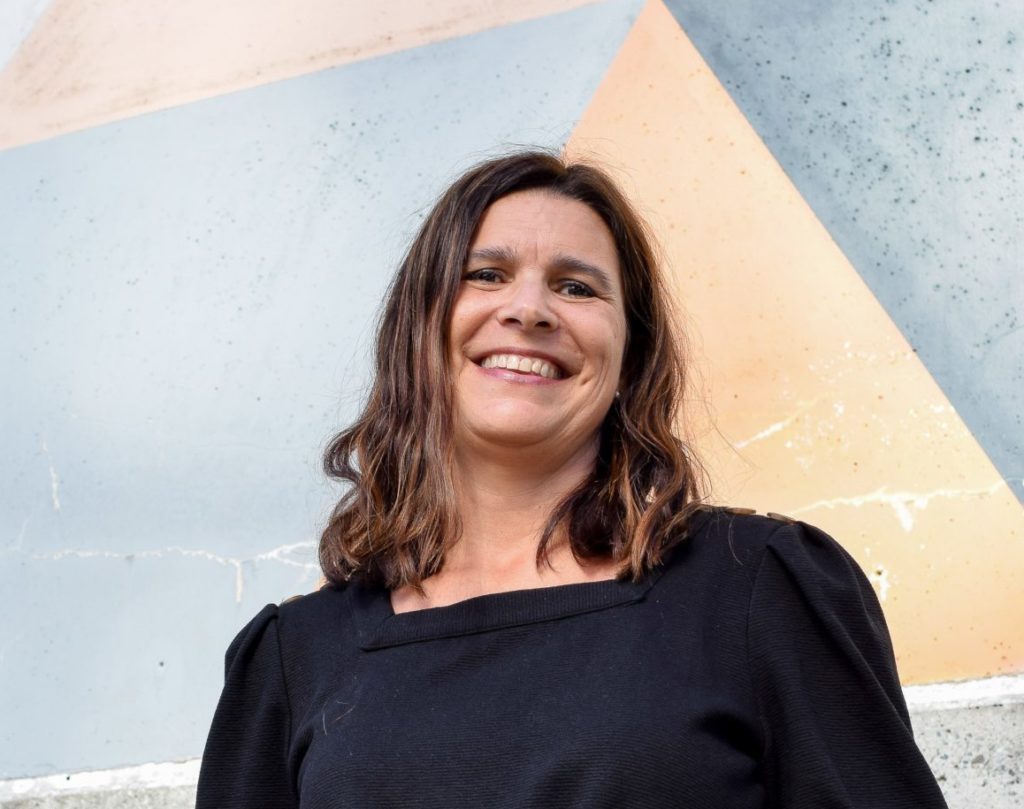 Contributed Family Counselor by Heather Bland, MAEd, NCC, LCAS-A
Contributed Family Counselor by Heather Bland, MAEd, NCC, LCAS-A
About Fellowship Hall
Fellowship Hall is a 99-bed, private, not-for-profit alcohol and drug treatment center located on 120 tranquil acres in Greensboro, N.C. We provide treatment and evidence-based programs built upon the Twelve-Step model of recovery. We have been accredited by The Joint Commission since 1974 as a specialty hospital and are a member of the National Association of Addiction Treatment Providers. We are committed to providing exceptional, compassionate care to every individual we serve.
